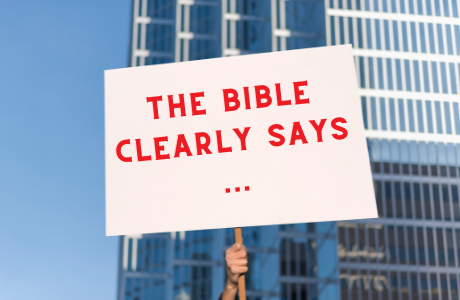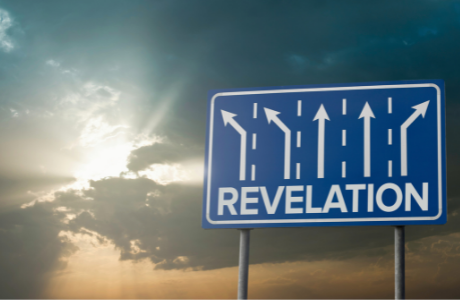We, humans, are fascinated by death and life beyond the grave. Before becoming a Christian, I frequently pondered these things and was riveted by discussions about reincarnation and communicating with the dead. One of the things that attracted me to the Christian faith was the assurance that this life is not all there is to life. So, let’s dive into some questions about heaven, resurrection, and immortality.
Do we go Straight to Heaven When we Die?
Christians differ on the answer to this question. Some believe as I do, that we go straight to heaven when we die. Others believe the Bible teaches Soul Sleep, that the righteous sleep until judgement day.
By heaven, I’m referring to the third heaven, which is God’s home and where Jesus is now. It is this third heaven that Paul said he visited either bodily or in a vision.
Jesus taught about the Kingdom of heaven, which is the impact of God’s nature on the earth. This is the emphasis of the New Testament and teachings of Jesus and is to be the focus of all followers of Jesus. In other words, our attention is on the here and now rather than the hereafter.
Searching the Scriptures
What does the Bible teach about going to heaven? Paul had much to say about this, particularly to the Corinthian church:
2 Cor 5:1, “For we know that if the earthly tent we live in is destroyed, we have a building from God, an eternal house in heaven, not built by human hands.” Notice that he refers to the body as a tent. A tent is a temporary dwelling place rather than a permanent home. It’s a beautiful comparison.
2 Cor 5:6-8, “Therefore we are always confident and know that as long as we are at home in the body we are away from the Lord. For we live by faith, not by sight. We are confident, I say, and would prefer to be away from the body and at home with the Lord.” You can also read Philippians 1:23 and 2 Tim 4:18 to gain more of Paul’s insights.
Peter wrote about heaven as our imperishable inheritance (1 Peter 1:4). The author of Hebrews spoke of the Old Testament saints longing for a better, heavenly country (11:16) in which to dwell.
Jesus spoke of a time when all who are in their graves will hear his voice and come out—those who have done what is good will rise to live, and those who have done what is evil will rise to be condemned. It appears that upon death, the soul of the faithful person goes to be with the Lord in his presence.
Soul Sleep
Some Christians believe that a person’s soul sleeps from death to the resurrection. Martin Luther believed this, as does Nicky Gumbel of Alpha Course fame. Paul’s words in 1 Thessalonians 4 are used in defence: “we do not want you to be uninformed about those who sleep in death, so that you do not grieve like the rest of humanity, who have no hope. For we believe that Jesus died and rose again, and so we believe that God will bring with Jesus those who have fallen asleep in him.” (13-14).
I believe the sleep here is metaphorical, like Jesus spoke about Lazarus when he died, “Our friend Lazarus has fallen asleep; but I am going there to wake him up.”
Proponents of soul sleep believe people’s souls are awoken for the resurrection at Christ’s return. But resurrection ALWAYS refers to the body, not the soul.
Consider Jesus’ interactions with the thief on the cross, “Truly I tell you, today you will be with me in paradise.” Supporters of soul sleep move a comma, “Truly I tell you today, you will be with me in paradise.” There is no punctuation in the original manuscripts, so it is a matter of opinion.
I believe our spirit/soul goes straight to heaven when we die, but I understand why some Christians believe the soul sleeps until judgement day. Whatever the case, one thing is sure, “Neither death, nor life, nor angels, nor rulers, nor things present, nor things to come, nor powers, nor height, nor depth, nor anything else in all creation, will be able to separate us from the love of God in Christ Jesus our Lord. (Romans 8:38-39).
When Does our Spirit Become Immortal?
Is the human spirit immortal, or is it made immortal when we’re born again or when we are resurrected? Once again, there are numerous views on this within the Christian church. In recent years I have come to lean more towards what is known as Christian mortalism, that the human soul is not inherently mortal and that one of the outcomes of Jesus’ death and resurrection is the gift of eternal life. In other words, people do not possess immortality. It is a gift from God.
Scripture says that [God] alone has immortality (1 Timothy 6:16; Cf. John 5:26). If he is the only immortal being that counts people out.
Consider God’s words in Genesis 3:22-23 after the man and woman had “become like one of us, knowing good and evil. He must not be allowed to reach out his hand and also take from the tree of life and eat and live forever.” So, the Lord God banished him from the Garden of Eden.” God acted kindly so that people would not live forever in poor conditions.
People do not live forever. The human soul is not immortal apart from an act of God by granting the gift of eternal life because “Our Saviour, Christ Jesus…has destroyed death and has brought life and immortality to light through the gospel.” (2 Timothy 1:10; Cf. Romans 6:23; 2 Tim 1:10; 1 Peter 1:3-4; Romans 2:7; Matthew 10:28).
We are given the gift of eternal life when we are born again. I am still determining whether our spirit becomes immortal at that point or when we are resurrected.
Next week, I’ll examine what the Bible says about the resurrection body.














